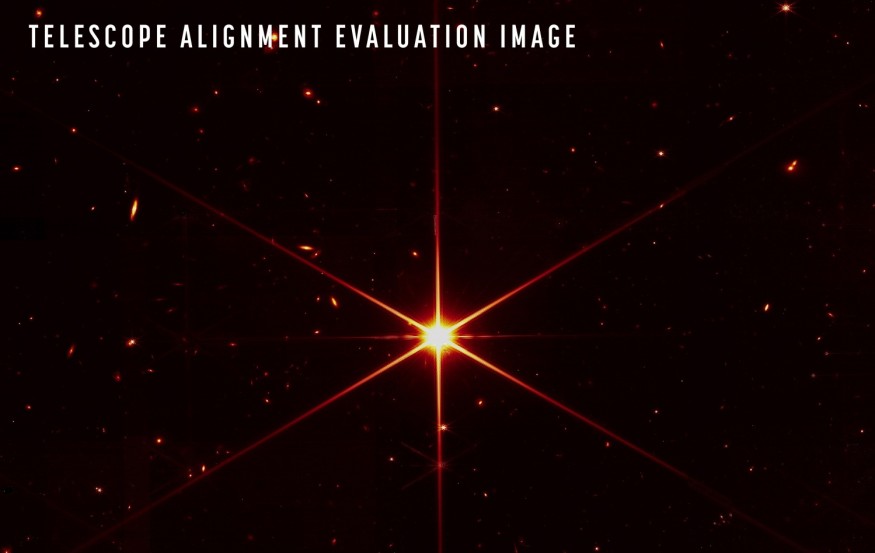A new National Aeronautics and Space Administration (NASA) James Webb Space Telescope photo reveals that the sun-orbiting observatory is on schedule to begin astronomical studies.
The image, which depicts a faraway star surrounded by galaxies, confirms that the $10 billion truck-sized telescope's 21.5-foot primary mirror is properly positioned and capable of capturing astronomical light and sending it to imaging devices on board.

NASA James Webb Space Telescope's Main Mirror Now Aligned Enough To Serve Purpose
According to new photos the space observatory recently released, the James Webb Space Telescope's 18 mirrors are now aligned sufficiently to serve as one colossal mirror.
A "selfie" from JWST illustrating the mirrors' development and updated photos of a single star is among the new photographs NASA recently provided.
Jane Rigby, a Webb operations project scientist at NASA's Goddard Space Flight Center in Maryland, said in a press briefing that the telescope's performance so far has exceeded all expectations.
"The engineering images that we saw today are as sharp and as crisp as the images that Hubble Space Telescope can take, but are at a wavelength of light that is totally invisible," she said as quoted by Space.com. Rigby further explained that the star looks reddish in the shot due to the employment of a contrast-optimizing filter.
ALSO READ : Hubble Space Telescope Captures a Nike Logo in the Sky? What's The Story Behind The Stunning Photo?
In a Wall Street Journal report, Marshall Perrin, Webb's deputy telescope scientist at the Space Telescope Science Institute in Baltimore, said the "generic, faceless" star visible in the photograph emanates light around 100 times fainter than the human eye can detect.
Last month's photos revealed 18 photographs of the star, each caught separately on each mirror section.
According to The Verge, the Near-Infrared Camera (NIRCam) captured what HD 84406 looks like when all 18 mirrors are working together. They were able to acquire not just a picture of the star but also images of distant galaxies behind it.
How NASA Did Fine Tuning
The dedicated Webb team at NASA HQ finished a "fine phasing" step earlier this month, which saw the last rotations of the telescope's mirrors. The team verified that every optical parameter was checked and proven to be operating at or above expectations during final phasing. There were no major concerns, contaminants, or blocks discovered.
ComicBook said the Webb Telescope is the first in space to employ segmented primary mirrors, with 18 hexagonal beryllium mirror segments. Because the mirrors had to be folded up after launch, its alignment has been a crucial element of the telescope's history in orbit.
Over the following six weeks, certain final stages must be completed, and full alignment should occur by early May. NASA will next have to wait two months for the research instruments aboard to be ready before taking and releasing the telescope's first full-resolution pictures. The company stated on Wednesday that the images will be distributed this summer.
Check out more news and information on Space in Science Times.












